How Adoption Inspired Brian Esser To Open A Law Firm In Park Slope
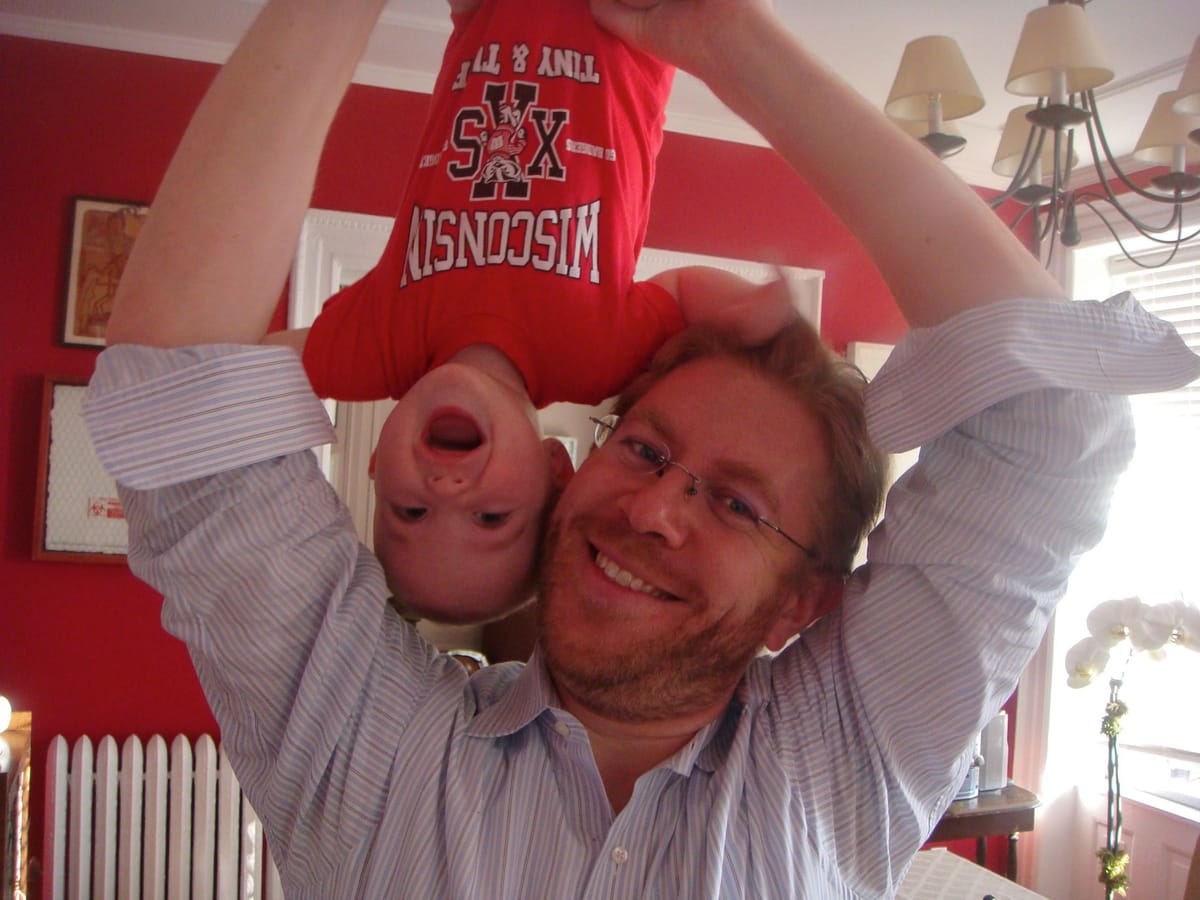
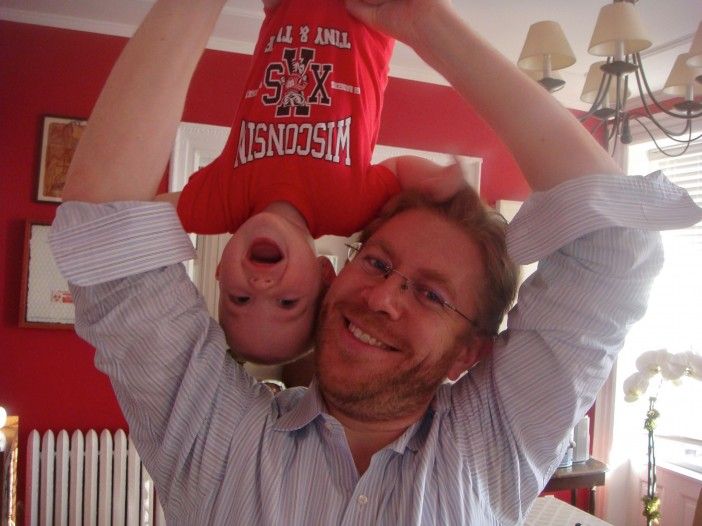
After spending years as a lawyer at large firms like Baker & Hostetler in New York and Arnold & Porter in Washington, DC, neighbor Brian Esser realized he was less enthusiastic discussing his work on the Bernie Madoff liquidation than he was about his less flashy cases.
“My joy was always my pro bono work, trying to save a man who hadn’t received a fair trial from the death penalty or helping a lesbian couple with a second-parent adoption,” Brian says. “At parties, everyone wanted to hear about Bernie Madoff, and I wanted to talk about my clients seeking asylum from countries where it’s deadly to be openly gay.”
That, combined with experiencing the complicated process of adopting his first son, led Brian to open his own law firm here in Park Slope in January of this year, specializing in adoption, surrogacy, assisted reproduction law, and estate planning.
We recently caught up with Brian to learn about his new firm, his experience — both personal and professional — with adoption for LGBT families, some of his family’s favorite things about living in Park Slope, and more.
What made you decide to transition into the specialties you practice now?
Brian Esser: In 2011, my husband and I adopted our son Keith. In the process I learned a lot about adoption, surrogacy, and assisted reproductive technology. About a year ago I realized I needed to make a career change, and that I feel passionately about building and protecting families. I decided that I could really contribute and provide a unique perspective.
Why did you open your firm in Park Slope?
I talked to a lot of people in late 2013; I did a listening tour of sorts. Everyone said I wouldn’t regret starting my own firm and that there was a real opportunity for someone located in Brooklyn because there weren’t many people doing this kind of work here.
I chose Park Slope specifically because I’ve lived here for eight years. It’s home and a wonderfully close-knit community that really rewards people who contribute to the fabric of the neighborhood. I have an office on President Street, close to my son’s daycare, but it’s also nice to be able to meet clients in their homes, get to know them as families.
You must deal with some cases that can be difficult and prolonged for those involved. How does your own experience with adopting your son help you in your work?
Well, we just adopted a second time — Keith has a new little brother named Jason — so the ups and downs are all very fresh for me. When you’re pursuing adoption the amount of work involved seems overwhelming at times. There is always another form, or an interview, or class that you have to go to. Then comes the wait, where seemingly nothing happens for months. At last you match with a potential birth mother, and there is a flurry of activity and emotion. But when you finally have your child in your arms for the first time, all of the work, the wait, and the worry melts away, the world stops, and you have a perfect moment with your child.
I do my best to bring all of that to every conversation with my clients. You need a good lawyer when you’re pursuing adoption, but you also need someone who will listen to you and understand what you’re going through.
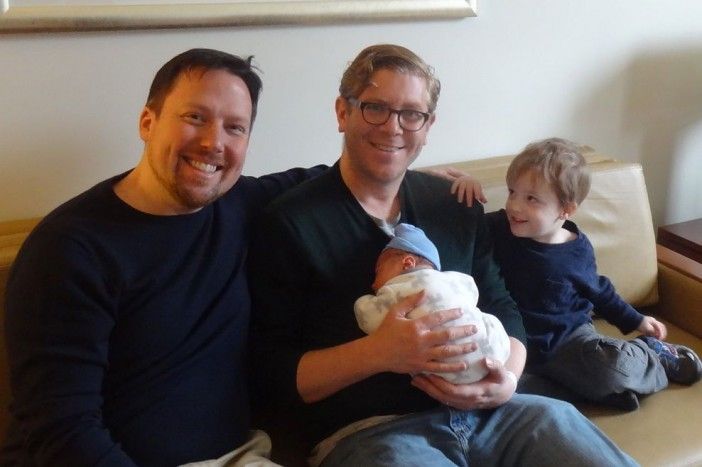
How is the landscape changing for LGBT families who are trying to adopt children?
In terms of the legal landscape, it varies tremendously by state. We’re lucky to be in New York where the rights of same-sex couples, married or unmarried, to adopt jointly, or adopt their partners’ children, have been protected for years by judicial decisions and by statute. In some states same-sex couples have to be married to be able to adopt jointly. In others, LGBT people can adopt as a single person, but not jointly. The spread of marriage equality is improving things significantly — especially for couples who need to secure rights for both parents.
In terms of opportunities to adopt, there are increasingly fewer obstacles. More and more agencies and attorneys are willing to work with LGBT couples and singles. The Human Rights Campaign evaluates adoption agencies for their competency in working with LGBT families, and the number of participating institutions increases every year. Without a doubt there are birth parents are willing to place their child with LGBT families. Anecdotally, some practitioners say that same-sex couples get picked faster than heterosexual couples, but there are no reliable statistics.
As far as other family building options, gay male couples are heavily marketed to by surrogacy agencies, and are sought after by women who are willing to be gestational carriers. I hear relatively few complaints from lesbian couples about overt homophobia at fertility clinics and other specialists when they attempt to get pregnant. Instead people talk about the friendliest providers.
What’s one piece of advice you offer to prospective adoptive parents?
I have two that are equally important. First, don’t get in your own way. Don’t let a form or a home study stop you from your dream of a family. Second, there is a child for every family.
Everyone thinks there is some reason why they won’t get picked by a potential birth mother — they’re too old, they’re too young, they live in the city, they don’t plan to be stay-at-home parents, they’re a gay couple, etc. You will make a connection with the birth family that is right for you.
My husband and I were in a pre-adoptive support group while we were waiting to get matched with Keith. The therapist, Joni Mantell, said that the mere fact that we were there meant it was going to happen.
“Get the car seat and be ready,” she said. She was right. So I tell my clients, “Get the car seat.”
Part of your services include estate planning — who should consider making a plan for themselves, and when?
If you have young children, you should definitely have a will. A will is the only way that you can designate a guardian for your kids, in the event that something should happen to you. I tell people that they should think of the family member who they least want to get their kids — and that you should assume that person will be appointed the guardian if you don’t make the decision. You also want to think about creating a trust under your will.
Even if you don’t have a lot of assets or young children, a will can help speed up the process of resolving your affairs and it makes your wishes known for your family.
When you meet with a lawyer to discuss your plan, your lawyer should talk to you about preparing a power of attorney, health care proxy, and living will. I think planning for disability (temporary or permanent) is just as important.
The time to work on an estate plan is now. You don’t have to wait until you buy a house, or have kids. You should re-visit your estate plan when major life events happen, but we can prepare a will and other planning documents that anticipates things like the birth of children.
These decisions won’t get easier to make and you won’t have more time in the future. You’ll sleep so much better knowing that you have your plan in place.
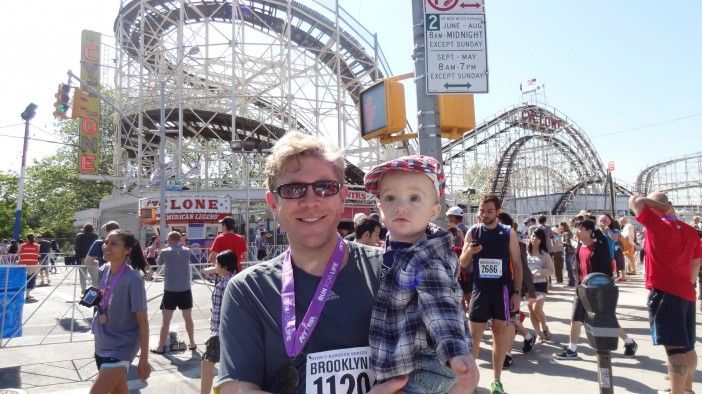
What are some things you like to do when you’re not working?
On the weekends you can usually find us at the playground at The Old Stone House. My neighbor (and friend) Kim Maier runs the programming there and she always has great events.
We’re members of the Brooklyn Botanic Garden — Keith loves the fountains and watching the koi in the Japanese garden. I love watching the seasons unfold and how the garden changes from week to week.
When I need to clear my head, I like to run in Prospect Park. I’ve run several half marathons and, fingers crossed, I’ll tackle the New York City marathon in 2015.
We love food. Al di la and Bogota are a few of our favorite date-night spots. For meals with Keith, Bark hot dogs are a Saturday lunch staple.
But now we tend to be home a bit more. [My husband] Kevin is a great cook, so it works out well for me. We grow herbs in containers on our fire escape, and we’re members of the Fishkill Farms CSA so we have no shortage of great produce to work with.
Why did your family decide to settle in Park Slope?
I grew up in Wisconsin and lived in Chicago and Washington, DC before coming to New York. I love Manhattan but couldn’t see myself living there. We investigated several Brooklyn neighborhoods before deciding on Park Slope. We didn’t have kids then, although we were fairly certain they were in the plan. Park Slope just felt right, it felt like home. Where else can you find this combination of great schools, beautiful parks, strong community, and lots to do?
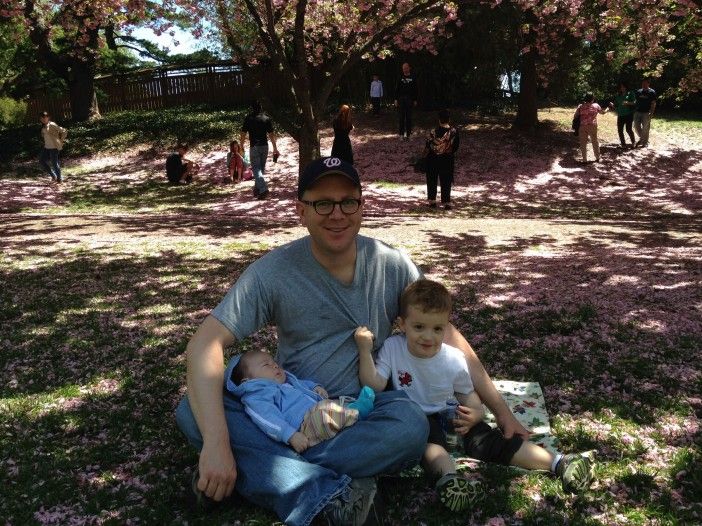
What’s your favorite part about raising a child in this neighborhood?
It really feels like a little village inside a larger city. Keith has three other kids in our eight-unit co-op who are the same age, and Jason is going to have two other kids who are the same age.
And we are totally unremarkable as a two-dad family — and I love that. I can’t remember the last time someone asked me, “Where is Mommy?”
Anything else you’d like neighbors to know?
My favorite part of my job is getting out into the community, talking to people, working through concerns, and helping them make plans that are right for them to either build or protect their families. Nothing gives me more professional satisfaction.
For more information about the Law Office of Brian Esser, visit his website or call 718-747-8447.
All photos via Brian Esser.



